The end of exemption?
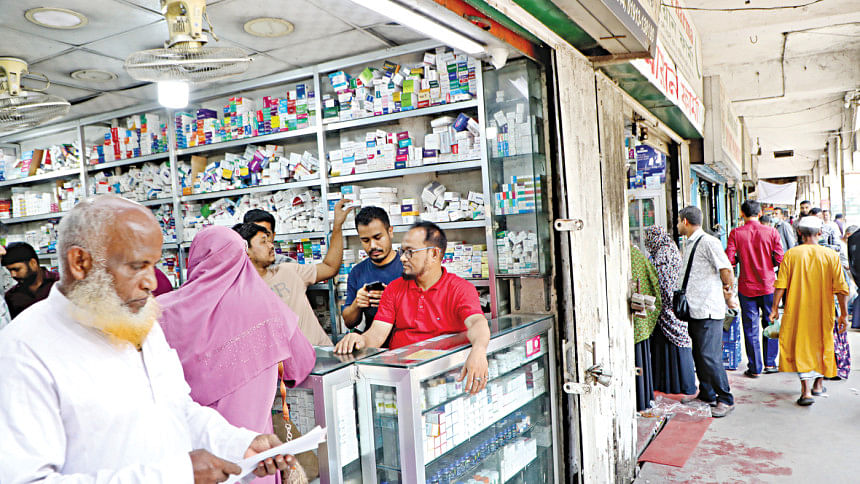
In the aftermath of the 1971 Liberation War, newly sovereign Bangladesh inherited little industrial infrastructure. The pharma nerve centre and related facilities, like many others, had been headquartered in Pakistan. Ensuring the availability of essential medicines became an urgent and expensive task. Pharmacies overflowed with imported drugs, many of them unnecessary, ineffective, or counterfeit, sold at inflated prices. Just eight multinationals controlled over 70 percent of the domestic drug market. While there were a handful of local players, they had little opportunity to grow.
That changed in June 1982, when the government introduced Bangladesh's first National Drug Policy. The reform was seismic. More than 1,700 so-called "irrational" formulations were banned, price controls were imposed, and foreign pharmaceutical firms faced strict new limits. The market became a space for local ambition.
Four decades later, Bangladesh went on to be known as a major player as a thriving low-cost generic drug industry defying big pharmas, and setting a precedent for the world to see. Local companies now supply 98 percent of the country's pharmaceutical needs, in a domestic market worth more than $3.5 billion. In fiscal year 2024-25, exports reached over 160 countries and earned $213 million. Several firms, including Beximco, Square, Incepta, Eskayef, now operate internationally, having earned accreditations from regulators like the US Food and Drug Administration, the UK's Medicines and Healthcare products Regulatory Agency, and the European Union Good Manufacturing Practice.
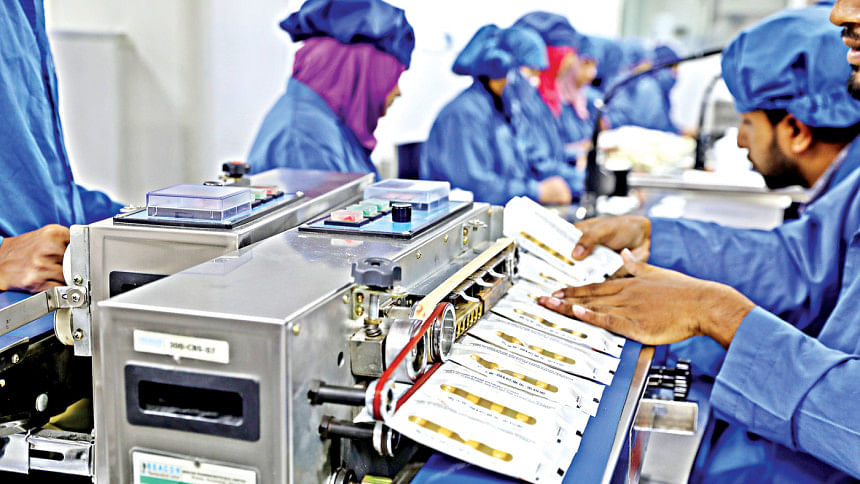
But behind that success lies a legal cushion: the TRIPS waiver.
THE LEGAL SCAFFOLD
As a least developed country (LDC), Bangladesh has been exempt from fully complying with the WTO's Agreement on Trade-Related Aspects of Intellectual Property Rights (TRIPS). That waiver, essentially, the legal permission to copy, has allowed Bangladeshi firms to legally produce patented drugs without paying royalties or securing licences -- a rare freedom in global trade. That legal shelter has powered the country's pharmaceutical rise, making life-saving drugs more affordable both domestically and for other low-income nations.
That immunity, however, is nearing its end. With LDC graduation expected in November 2026, Bangladesh will be required to comply with global patent rules.
"Losing TRIPS waiver would create substantial pressure, both on the domestic market and exports," said Selim Raihan, executive director of the South Asian Network on Economic Modeling (Sanem).
Raihan said the issue not only involves Bangladesh's interest but also some other low-income nations that rely on affordable medicines from the country.
Though there is still time for the waiver to end, with opportunities to prepare and even negotiate an extension, the economic and legal expectations of LDC graduation have already accelerated pressure.
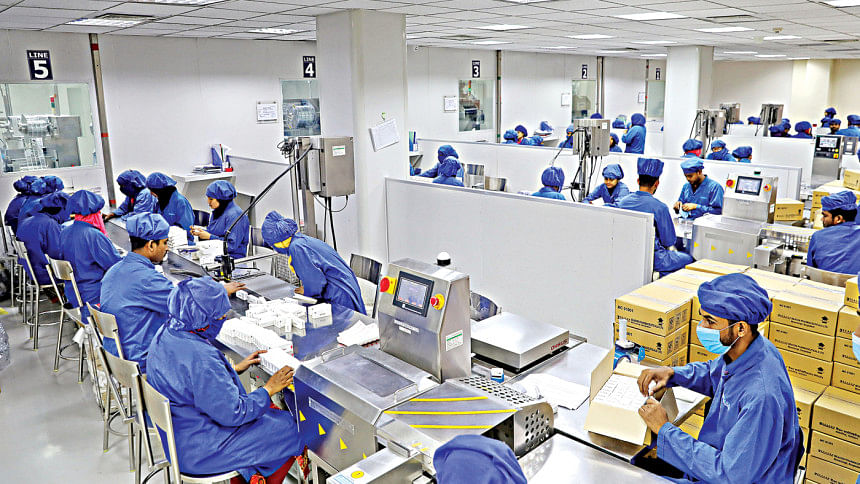
"Currently, we can manufacture many new medicines ourselves without taking a licence from patent holders," said Abdul Muktadir, managing director of Incepta Pharmaceuticals. "But if the TRIPS waiver ends, our freedom in the industry will significantly shrink."
"After graduation, if a new drug emerges that costs hundreds of thousands of takas in Europe or the US, it will be difficult to reduce its price in Bangladesh," Muktadir said. "Producing it without a licence would be illegal. So either we would have to import it at high prices or negotiate licences from patent holders, which often involves stringent and costly terms."
While some multinational pharmaceutical companies, such as GlaxoSmithKline (GSK), sometimes grant licences at low costs out of social responsibility, others, such as Pfizer and Novartis, are known to be less accommodating. "They don't want their products made cheaply elsewhere," Muktadir added. "That will be our biggest challenge. Treatment costs will go up. And people will suffer."
To be sure, many generic drugs, those whose patents have expired, will remain unaffected, meaning prices for basic medications are unlikely to spike overnight.
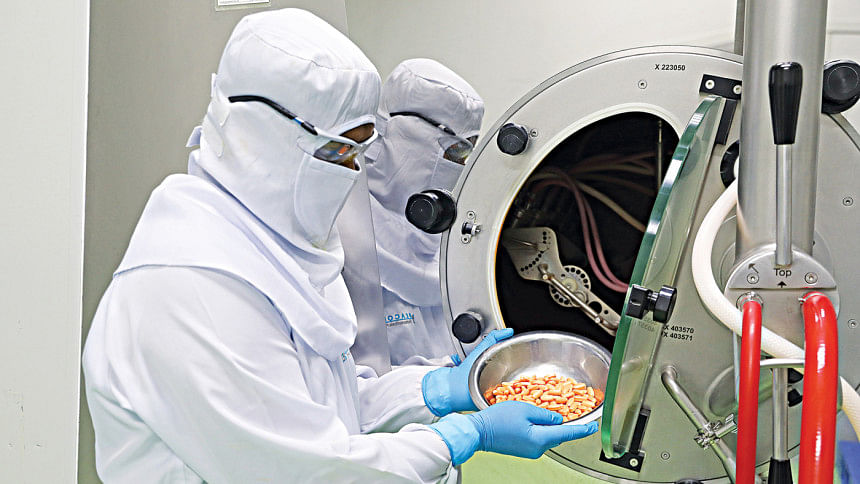
BETWEEN MOLECULES AND MARKET
The looming challenge is twofold: legal and technological. Legally, Bangladesh will be required to comply with patent laws, pay royalties, or negotiate licensing agreements for any drug still under protection, especially in areas like oncology, autoimmune disorders, diabetes, and rare diseases.
Technologically, the pharmaceutical landscape is shifting toward biologics -- complex, high-precision drugs made from living organisms. Producing biologics requires advanced know-how and infrastructure, areas where Bangladesh still lags.
According to Monjurul Alam Monju, chief executive officer of Beacon Medicare, biologics are a completely new ball game, and local manufacturers remain mostly underprepared.
"If new biologic drugs fail to receive regulatory approval by 2026, we'll face major patent barriers. Either they'll become unavailable to patients or too expensive for most people to afford," he said.
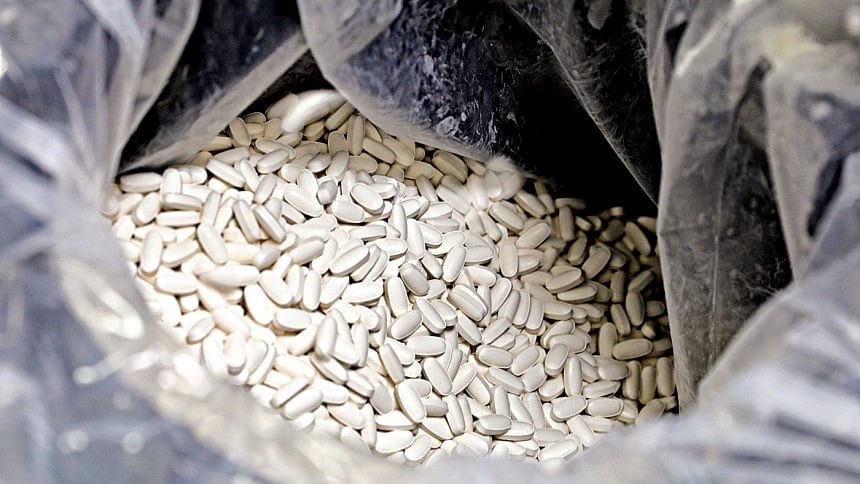
Zahangir Alam, chief financial officer of Square Pharmaceuticals Ltd, said, "If a new molecule is discovered abroad after the waiver ends, we'll need licenses or pay royalties."
"Although technology transfer agreements and royalty negotiations could ease the transition, as was the case in India after 2002, there is a real risk of higher production costs and delays in introducing new medicines to the local market," he added.
Meanwhile, Monju warned that without the ability to offer cheap alternatives to high-priced brand drugs, Bangladesh's pharmaceutical exports, built largely on affordability, may fail to stay competitive.
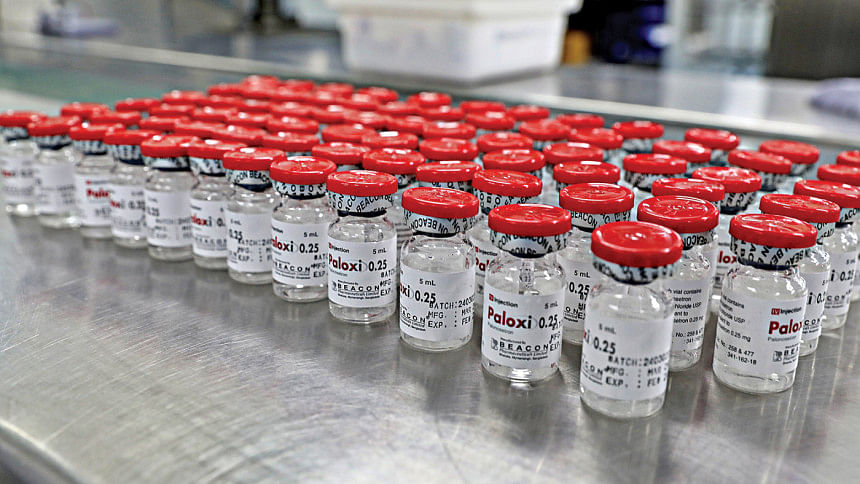
And biologics are just the beginning. With each passing year, new patented drugs are introduced globally, which will require Bangladesh to purchase expensive licences to produce them.
Mustafizur Rahman, a distinguished fellow at local think tank Centre for Policy Dialogue (CPD), estimates that 20 percent of the drugs manufactured in Bangladesh today are still under patent protection, while the patents on the remaining 80 percent have already expired. Without access to those licences post-waiver, either production will halt or prices will soar. "This could push the prices of patented drugs significantly higher."
Citing a study by the South Centre in Geneva, he said it was estimated that insulin prices could increase eightfold in Bangladesh without the TRIPS exemption. "For a country where affordability defines access," Rahman said, "this is not a marginal issue. It is central to public health."
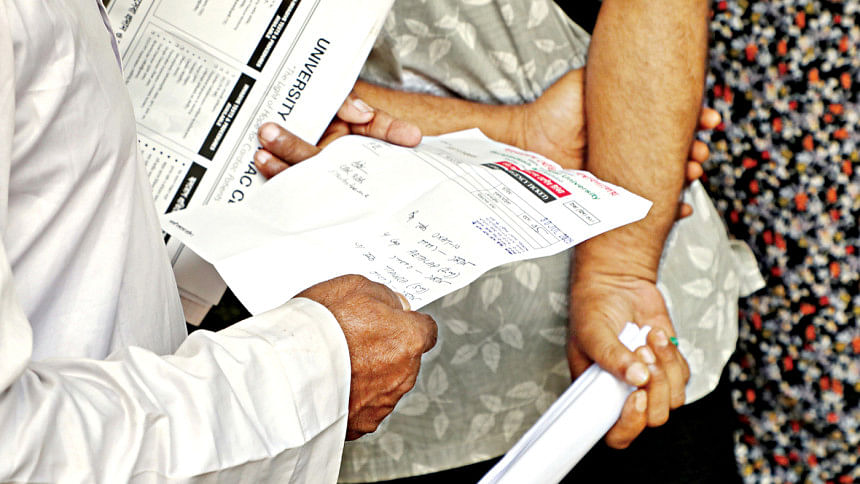
DEPENDENCY, AGAIN
Bangladesh currently imports nearly all its active pharmaceutical ingredients (APIs), the core chemical compounds used in drug production, from countries like India, China, and South Korea. Total annual API imports are estimated at $1.2 billion. This dependency exposes the industry to geopolitical tensions, price volatility, and supply disruptions.
The government, for its part, announced an API Industrial Park in Gazaria back in 2008.
But 15 years on, the project remains mostly incomplete. Of the 42 plots designated for API production, only four have begun operations thanks to the absence of a gas connection.

As licensing fees and input costs rise post-waiver, Bangladesh's pharmaceutical sector will be squeezed from both ends. Even prices of non-patented drugs could rise if raw materials become costlier.
"Dependence on China and India for pharmaceutical inputs would deepen, as Bangladesh's domestic API production is insufficient. The pharmaceutical export sector could suffer severe setbacks," said Monju.
The Beacon Medicare CEO called for reforms: streamlined registration, a focus on biosimilars, robust research and development investment, and expanded API production
"Otherwise, our people will be deprived of advanced medical treatments, and the pharmaceutical sector's export earnings will face a serious blow," he added.
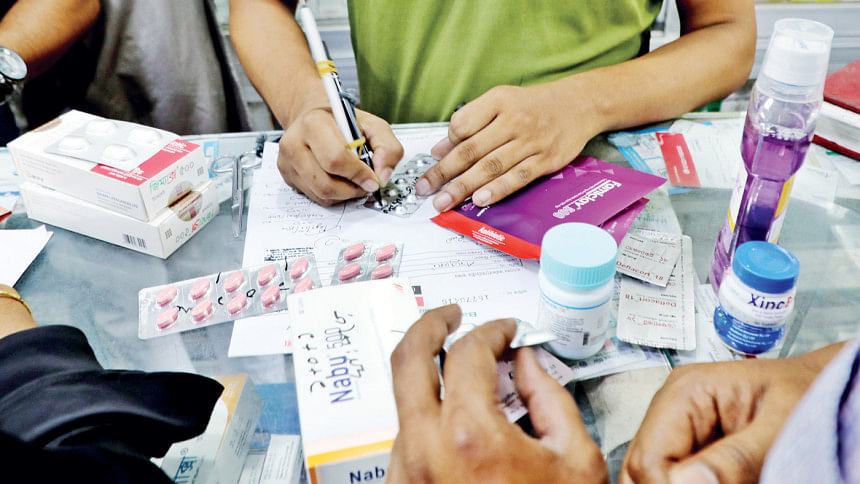
AT A POLICY CROSSROADS
For now, the government says it is trying to prepare. Md Akter Hossain, director at the Directorate General of Drug Administration (DGDA), said regulatory processes are being streamlined.
"We're working to simplify and fast-track product approvals," he said, noting that intellectual property laws are also being amended to align with post-graduation realities.
"Legal ownership of most products remains with foreign entities, limiting our control. Still, we are working on regulatory terms and production guidelines to support the industry," he added.
He said that although there is no direct public investment in the industry, the DGDA is maintaining close coordination with the pharmaceutical association to understand challenges and respond effectively.
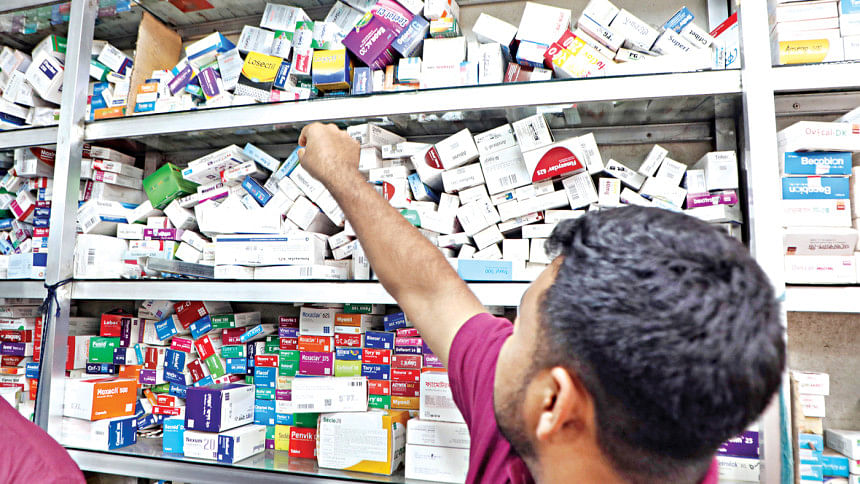
Syed Abdul Hamid, a professor at the Institute of Health Economics of Dhaka University, took a somewhat measured view.
"The immediate impact of an end to the TRIPS waiver may be minimal due to existing registrations," he said, emphasising future challenges without proper regulatory and pricing frameworks.
"But new drugs don't flood the market every year," he said. "However, when they do, they're often critical, like antivirals, cancer drugs and rare disease therapies. We need proactive regulation, academic collaboration, and readiness for what's coming."
As of now, Hamid sees no reason for alarm, expecting a gradual transition.
But others within the sector remain unconvinced.
"The country's patent office isn't functioning effectively," said one senior executive at a top firm, speaking anonymously. "Even now, many government officials don't fully understand what's coming."
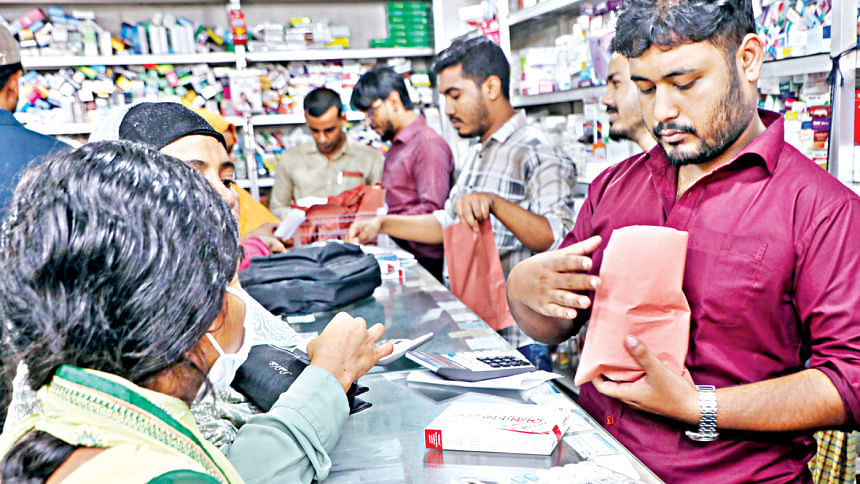
Rabbur Reza, chief operating officer of Beximco Pharmaceuticals, said that while major companies are preparing to face the post-graduation challenges with their own capacities, the government appears unprepared, and the consequences could be severe.
Citing examples, he noted, "During Covid-19 and Hepatitis C treatment rollouts, Bangladesh was able to supply some of the most affordable generics in the world. Without the TRIPS waiver, such access might disappear. Drug prices could go up tenfold or more."
Referring to Indian pharma industry development, the Beximco executive said India took initiatives to face this similar challenge 40 years ago but Bangladesh is still lagging behind.
He called for urgent policy reforms, including revised patent laws, a dedicated pharmaceutical IPR cell, and strengthened R&D infrastructure.
"This is not just a business issue, it's a public health concern," Reza said.
THE ROAD FROM HERE
Bangladesh, alongside several other LDCs, has proposed that the TRIPS waiver be extended to 2029.
"This would give the local pharmaceutical industry time to adjust and absorb the impact," Salim Raihan said, warning that the loss of the waiver could jeopardise investments and threaten the livelihoods of hundreds of thousands of skilled workers in the industry.
Unfortunately, prospects appear slim.
"Major pharmaceutical lobbies in the United States and elsewhere are not keen to extend the waiver," said CPD's Rahman.
While the European Union, the UK and Canada continue to offer some trade facilities on a bilateral basis, no multilateral agreement has yet been reached to extend TRIPS waiver benefits or other special and differential treatments for graduating LDCs.
But, even if the extension is granted, it will only delay, not prevent, the inevitable. Eventually, Bangladesh will have to comply fully with global IP rules. The only question is whether the industry will be ready.
Square CFO Alam sounds cautiously optimistic.
He said the company is now focused on expanding Bangladesh's pharmaceutical presence globally.
"With strategic planning and close collaboration with regulators and international partners, we believe we can continue to grow, even under tighter global trade and patent rules," he added.
But there is a creeping sense that the opportunity window is narrowing. The 1982 drug policy gave the sector its first real shot at independence. The TRIPS waiver gave it wings. Now, as both history and legal protection fade, the question remains: what next?

 For all latest news, follow The Daily Star's Google News channel.
For all latest news, follow The Daily Star's Google News channel. 








Comments